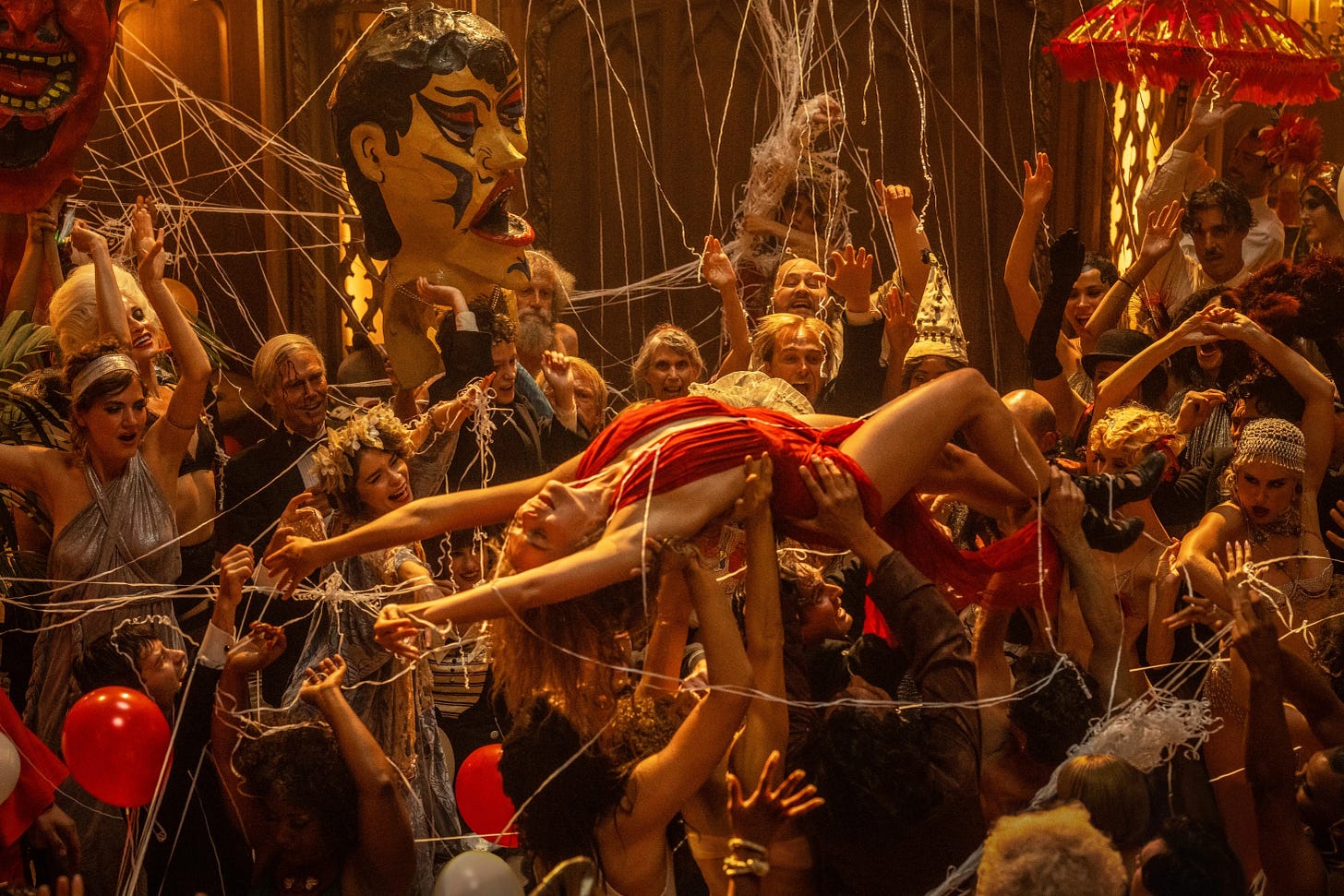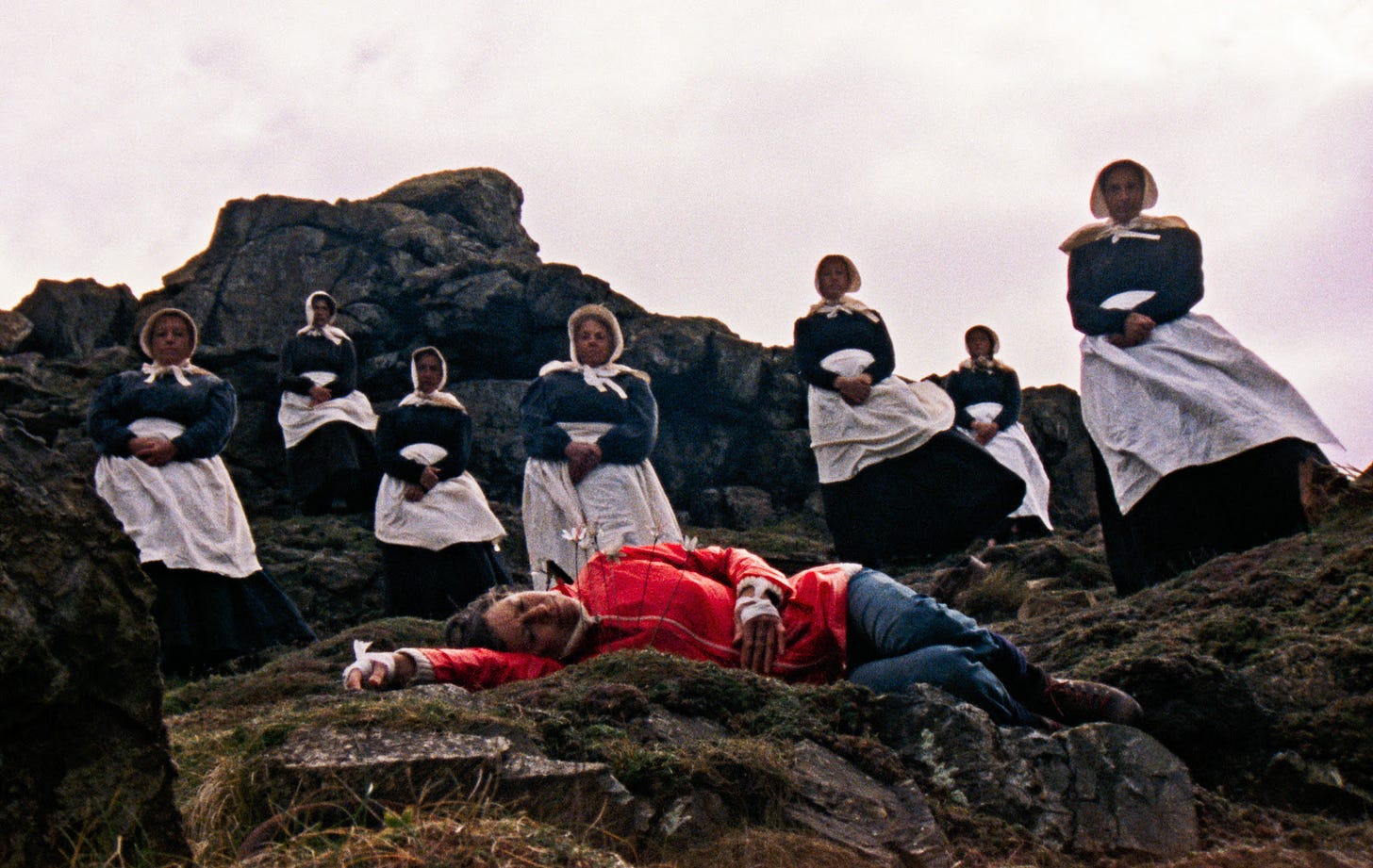January’s been a pretty good month for me in terms of film-watching. I often find the new year a reinvigorating time to jump back into films both new and old. Here’s some of the highlights of my January viewing.
While American audiences are treated to their awards movies in time for the end of the year, we across the pond often have to wait upwards of a month or two to discover whether all the hype is worth it. Oscar nominations dropped in late January, and there are still a few films from among their ranks yet to grace our screens. Fortunately, the films we did get were by and large pretty damn great.
The standout was TÁR, a methodical music drama about a problematic conductor played with gusto by Cate Banchett. It really is an exquisite film on all fronts. Meticulously crafted by Todd Fields, utilising vast spaces and patient editing to quietly unnerving yet altogether captivating effect. It’s sleekly shot, interspersed with deafening silences that counter the explosions of glorious music. And Cate Blanchett at the centre of it all, tying its often loose strands together with a mesmerising performance. For me, it’s the best of her career. Lydia Tár is the sort of character you can dig into endlessly - a complex ball of charisma with countless layers. And Blanchett never has you doubting her for a second. Worthy of all the praise and then some.
The other major highlight of the new releases was Babylon, the latest film from the much acclaimed young director Damien Chazelle. He’s already proven to be a filmmaker with a deep love for cinema history, and now has brought it to life in extravagant, excessive, intoxicating glory. A three-hour sprawling epic, his latest film charts the transition from silent cinema to the talkies, all while examining art in relation to fame and success. Just from reading the synopsis, it seemed like a film that would be right up my street. And from the moment the old school Paramount logo appeared at the start, I was hooked.
Babylon is loud and opulent, vast and sprawling, so incredibly messy, and all the better for it. Damien Chazelle’s vision of silent era Hollywood and its move into the talkies is imbued with equal doses of affection and damnation. He peels back the sticky glamour to reveal the pain lurking beneath, as morality codes began to kill the wild, free-living debauchery of the 20s. And yet he has such fun doing it, whirling around the craziest of locations, revelling in the chaos he orchestrates. His kinetic camera leads you through this manic world, sometimes guiding you, other times dragging you along for the ride. It’s all supplemented by Justin Hurwitz's pulsating score, enhancing the energy of numerous stylish sequences as well as the emotions of the occasional tender moments.
It's a great lumbering beast of a production. Often Chazelle threatened to lose me, only to stick the landing at the last second, pulling me back into the fold often on pure feeling alone. He feels as enraptured by the intangible allure of Hollywood’s Golden Age as his flawed characters, which makes for a film that’s narratively loose but immensely engaging on a more idealistic level. He begins to push those themes a bit too forcefully towards the final few minutes, but even then I felt he saw the film through with assurance. A few pretentious touches are easily forgivable. Babylon may not be quite up to his typical standard (at least in my mind), but as far as I’m aware Chazelle’s delivered once again.
Those weren’t the only trips to the big screen; just the standouts. Enys Men confounded me in a way few other recent releases have. Mark Jenkin’s latest indie folk horror, once again set in Cornwall and filmed on striking 16mm, was a strange descent into a dreamlike haze. I’m not sure it was entirely comprehensible, and often feels a stereotypically pretentious arthouse film. That said, it still stayed with me after the viewing, even if I struggled with it for stretches. Empire of Light was less impressive in my mind, but still made for a perfectly standard British drama. Set in a cinema in Margate, it once again proved Olivia Coleman to be one of the finest actresses working today. Yet it also felt like the blandest project Sam Mendes and cinematographer Roger Deakins have collaborated on in quite a while. Less Skyfall, more Spectre if you ask me.
It wasn’t all new releases that had my attention though. I was able to tick off a few major blindspots in my film watching. I saw La Dolce Vita and Black Girl for the first time, both included in the latest Sight & Sound Top 100 films poll, and both expectedly excellent. I got my monthly dose of vintage Hollywood cinema too, revelling in the delightful charms of Billy Wilder’s A Foreign Affair. It’s a film about American troops in occupied Berlin that manages to be both a charming comedy and a touching romance, while also serving as a sombre analysis of post-war Germany. Given Wilder’s own time spent in pre-war Berlin, it’s unsurprising that he explores the moral dilemmas of the city’s post-war struggles with frankness and nuance. The location shooting makes it feel as much like a postcard from the past as a conventional Hollywood film. He also coaxes wonderful performances out of Jean Arthur and Marlene Dietrich, and tops it all off with a typically brilliant screenplay. There was also 1936’s Wife vs. Secretary, which sees Myrna Loy and Jean Harlow competing for Clark Gable’s attention, as well as Counsellor-at-Law, a stagey drama with a great John Barrymore performance (and also one of the few William Wyler films I had left to tick off my watchlist).
So yeah, all-in-all a great month of film watching. There’s definitely a few gems worth catching on the big screen while they’re still out. Now, let’s see what February has in store.







What you looking forward to the most in feb?
Great read 💪🏻 looking forward to February